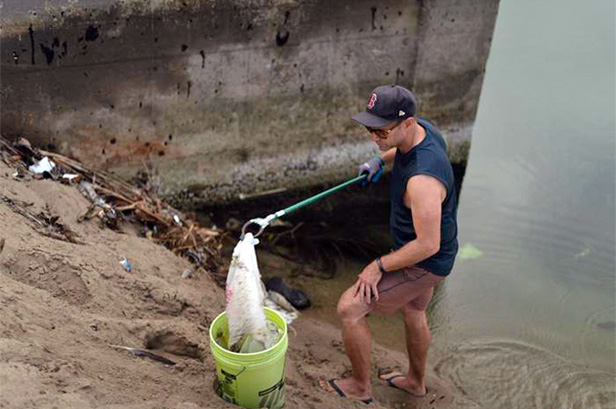Sustainability June 25, 2025
Study: Plastic Bag Bans Are Working To Reduce Litter
A recent study published in the journal Science found a 25% to 47% decrease in plastic bag litter in shoreline cleanups.
Key Takeaways
• Policy Impact: A new study in the journal Science found that plastic bag bans and fees have led to a 25% to 47% reduction in shoreline plastic bag litter.
• Ongoing Challenge: Despite improvements, plastic bags still make up a growing share of shoreline litter overall.
• Promo Opportunity: Timed with the onset of Plastic Free July, promo products distributors can offer clients high-quality totes and other reusable items to replace single-use plastics.
As Plastic Free July is poised to begin, there’s some good news on the fight against single-use plastic.
A new study from the University of Delaware and Columbia University, published in the journal Science, finds that bag bans are positively impacting marine ecosystems.
Single-use plastic bag bans (as well as policies that impose fees on bags) have resulted in a 25% to 47% decrease in plastic bag litter in shoreline cleanups, according to the study. “This relative decrease grows in magnitude over time after policy implementation, with no evidence of rebound or spillover effects,” the study notes.

A volunteer with Ocean Conservancy’s International Coastal Cleanup removes a plastic bag from Venice Beach in Los Angeles. (Courtesy Val Vega for Ocean Conservancy)
Thin plastic shopping bags – which have low recycling rates and often become litter when they blow away in the wind – are among the biggest culprits of plastic pollution in the ocean, where they can entangle animals and break down into harmful microplastics. A dozen states and many individual cities and counties have instituted bans or fees on plastic bags as awareness of the issue increases. For the study, researchers analyzed 180 local programs, including full bans, fees on shopping bags and partial bans, then looked at data from more than 45,000 shoreline cleanups to compare the litter before and after the policy was passed, as well as note the difference between areas with and without a policy. The researchers pulled information from a database used by the Ocean Conservancy that keeps crowdsourced records from thousands of cleanups around the world each year.
“Overall, our findings do show that plastic bag policies are broadly effective in limiting litter along shorelines,” said Anna Papp, an environmental economist and study author. “Ours is the first large-scale study to use hundreds of policies and tens of thousands of cleanups to look at their effects. But it is important to keep in mind that this is a relative decrease in affected areas compared to areas without policies.”
One caveat, however, is that despite the policies reducing the percentage of plastic bags on shorelines, the overall percentage of plastic bags is increasing overall; it’s just increasing less in places with bag bans and fees than in those without. “We’re still getting more plastic bags on shorelines as a percentage of all the cleanup items over time,” said Kimberly Oremus, an associate professor at the University of Delaware and another study author. “It’s not eliminating the problem; it’s just making it grow more slowly.”
Plastic Free July, where individuals pledge to cut out single-use plastics during the month, is the perfect opportunity to offer thoughtfully sourced, sustainable merch, like high-quality reusable totes to replace disposable shopping bags.
The new study builds on previous research showing that plastic bag bans work. A 2024 report from the nonprofits Environment America, U.S. Public Interest Research Group Education Fund and Frontier Group found that bag bans in five areas – New Jersey; Vermont; Philadelphia; Portland, OR; and Santa Barbara, CA – reduced the number of single-use plastic bags used each year by around 6 billion.
For many in the promo products industry, single-use plastic bag bans have been viewed as an opportunity to sell more branded reusable totes to clients. “High-quality, machine-washable reusable bags can be a joy to own and use and have a significantly lower environmental impact than single-use or quasi-single-use bags,” Andy Keller, founder and CEO of California-based ChicoBag (asi/44811) and a member of the Promo for the Planet Editorial Advisory Board, has said.
According to the 2024 report on the effectiveness of plastic bag bans, more than 500 municipalities in 28 states had plastic bag legislation in effect as of 2021. Plus, 12 states have single-use plastic bag bans: California, Colorado, Connecticut, Delaware, Hawaii, Maine, New Jersey, New York, Oregon, Rhode Island, Vermont and Washington.

Promo for the Planet is your destination for the latest news, biggest trends and best ideas to help build a more sustainable and socially-responsible industry.
